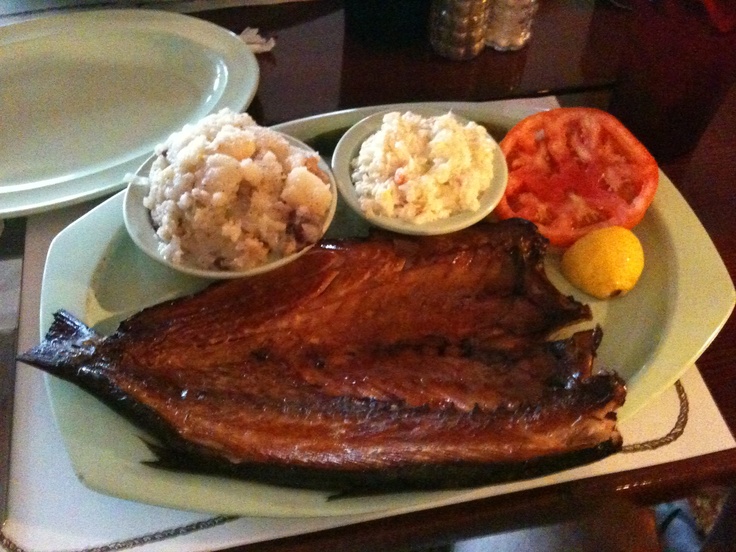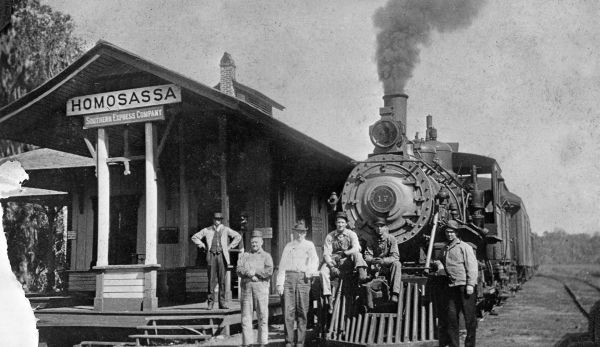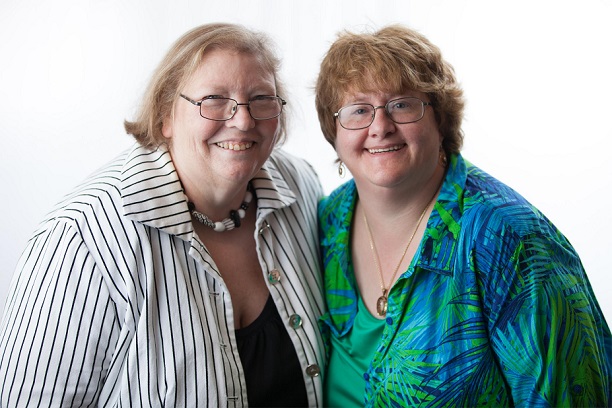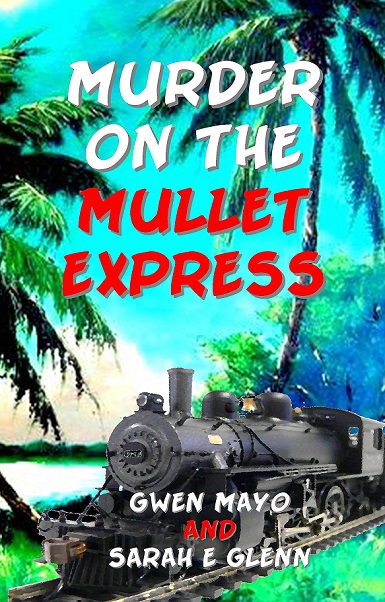Please help me welcome Gwen Mayo, half of the writing team of Gwen Mayo and Sarah Glenn who penned Murder on the Mullet Express, which I reviewed last Sunday. I thought the little details about the trains and the steam engines rang very true in the book, and here’s why:
As a certified locomotive engineer, and one of the last classes of engineers to qualify on steam engines, discovering the Mullet Express was a quirky bit of history that I had to learn more about. After all, a mullet is a hairstyle, right? Why name a train for that?
They didn’t.
In Florida, the mullet is also a fish, or a bird. Yes, a bird. In 1919, six Tampa Bay boys caught fishing out of season found a young lawyer by the name of Pat Whitaker. The boys couldn’t afford to pay him but they took him out to dinner to discuss the problem. While Whitaker was watching, the cook prepare mullet for smoking he noticed that the mullet had a gizzard. His would-be clients explained that the mullet was a bottom feeder and the gizzard helped it digest the sand it picked up while eating.
Whitaker decided to take the case, and showed up in court with a stack of library books. He argued that the mullet was a bird because it had a gizzard, and showed the judge that no other fish had one. The history junkie in me would love to be sitting in that courtroom to hear how he explained away the fins and gills.
Smoked mullet was a staple of the Florida diet for two centuries.
Six days a week, The Mullet Express left Homosassa with a couple of passenger cars, the mail, and barrels of smoked mullet from Citrus County. The train wound its way to Ocala, stopping in every hamlet along the way. Once it reached Ocala, the train was turned for the trip home. Its cargo was offloaded and shipped inland.
To be honest, the entire cargo wasn’t mullet. It turns out that barrels of mullet make a great hiding place for moonshine. Around the time those boys were arrested for fishing out of season the country decided to outlaw booze. Shipping moonshine became a highly lucrative business.

I suppose, the Mullet Express isn’t a bad name for a train. It could have been named the Lisa Express. In the infinite wisdom of political circles the State Legislature tried to change the name of Mullet to Lisa.
I am not making this up.
Mullet was popular in Florida, but wasn’t catching on in other parts of the country. The Florida Board of Conservation thought there were too many kinds of mullet, and wanted to distinguish the prized black mullet from the “trash fish” of the same name. Test cans of “Lisa” were shipped to hospitals and schools around the state with recipe books on how to prepare Lisa.
Thankfully it never caught on. I don’t care for “Murder on the Lisa Express” as a title. Besides, I enjoy smoked mullet. The thought of ordering a bowl of “smoked Lisa” at the local seafood house gives me the creeps.
ABOUT THE AUTHORS

Gwen Mayo is passionate about blending her loves of history and mystery fiction. She currently lives and writes in Safety Harbor, Florida, but grew up in a large Irish family in the hills of Eastern Kentucky. She is the author of the Nessa Donnelly Mysteries and co-author of the Old Crows stories with Sarah Glenn.
Her stories have appeared in A Whodunit Halloween, Decades of Dirt, Halloween Frights (Volume I), and several flash fiction collections. She belongs to Sisters in Crime, SinC Guppies, the Short Mystery Fiction Society, the Historical Novel Society, and the Florida Authors and Publishers Association.
Gwen has a bachelor’s degree in political science from the University of Kentucky. Her most interesting job, though, was as a brakeman and railroad engineer from 1983 – 1987. She was one of the last engineers to be certified on steam locomotives.
You can visit Gwen on her Website * Read her Blog * Follow her on Facebook and Twitter and Linked In and Goodreads * And see all her book on her Amazon Author Page.
Sarah E. Glenn has a B.S. in Journalism, which is a great degree for the dilettante she is. Later on, she did a stint as a graduate student in classical languages. She didn’t get the degree, but she’s great with crosswords. Her most interesting job was working the reports desk for the police department in Lexington, Kentucky, where she learned that criminals really are dumb.
Her great-great aunt served as a nurse in WWI, and was injured by poison gas during the fighting. A hundred years later, this would inspire Sarah to write stories Aunt Dess would probably not approve of.
You can visit Sarah on her Website * Read her Blog * Follow her on Facebook and Twitter and Linked In and Goodreads and her Amazon Author Page.

A cozy mystery with terrific, older sleuths who are great fun to follow around.
